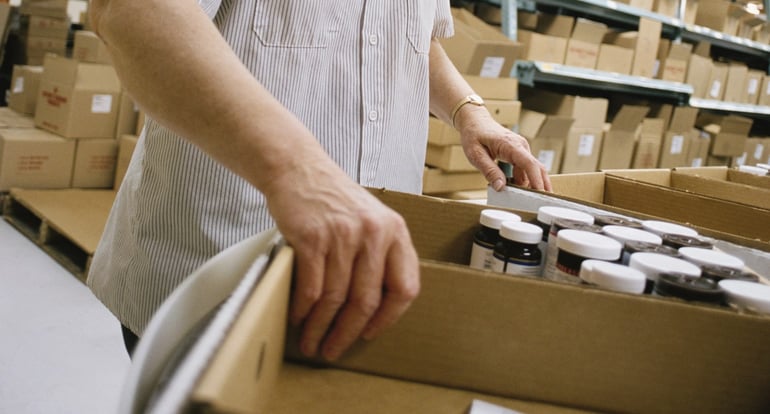What You Need to Know for the DSCSA November 2023 Requirements

In 2013, the United States Congress enacted the Drug Supply Chain Security Act (DSCSA), putting in place requirements and a timeline to develop and enhance drug supply chain security by 2023. This was done in an effort to curb the number of counterfeit drugs entering the supply chain, and to quickly detect them if they do.
Since 2015, manufacturers, re-packagers, wholesale distributors and pharmacies have been required to be able to trace products at the lot level. As of November 27, 2023, a new set of requirements take traceability to the next level, making identifying and tracking drugs down to the package level an obligation.
These new DSCSA November 2023 requirements affect all stakeholders in the supply chain; however, they will be more onerous for smaller players like distributors and pharmacies further down the chain, who may not have the essential technology infrastructure in place.
Here’s a look at what you need to consider for the DSCSA November 2023 requirements.
Approaching this compliance challenge the right way can save money, time and frustration
For several years, drug manufacturers have included serial numbers on product packaging. However, until the next stage of DSCSA November 2023 requirements come into effect, there has not been a requirement to track that package-level serial number.
An important aspect of these upcoming requirements that cannot be ignored is that each player in the supply chain must maintain secure, electronic and interoperable systems that verify and trace drug products to the package level.
This means that when drug manufacturers sell a product, they must have an electronic file that essentially says, “I am sending you these 1,000 serial numbers.” The electronic interoperability of data is referred to as enhanced drug distribution security (EDDS) and is one of the fundamental requirements as defined by the US Food and Drug Administration (FDA). The trading partner, such as a 3PL or distributor, must physically verify that those 1,000 serial numbers match what is listed in the electronic file. The same exchange then happens between the distributor and the dispenser. DSCSA also requires each player in the supply chain to be registered to manufacture/sell pharmaceutical products. Setting up this ability for two partners to exchange data is commonly referred to as onboarding. The amount of time and effort to perform this task should not be taken lightly.
In addition, DSCSA mandates each trading partner must have the ability to verify suspect or illegitimate product, and when found, initiate verification requests within 24 hours. In addition, each company must be able to respond to these verification requests from trading partners, state or federal agencies all within the same 24-hour period.
How the DSCSA November 2023 requirements will affect distributors
As we approach the deadline, distributors in particular need to be prepared as quickly as possible. Putting aside the technical onboarding processes for a moment, distributors who are building up inventory now must collect and store the serial number data of that inventory for it to be sellable anytime after November 2023. So, distributors must act as soon as possible because without package-level serialization data, any inventory cannot be sold to anyone downstream (dispensers/pharmacies).
The technical onboarding process will be daunting as well. A distributor may have somewhere near 50 suppliers upstream, but close to 1,000 downstream pharmacies. This means that distributors must reach out to their 1,000+ upstream and downstream trading partners to both load data for existing inventory and to test processes for future orders.
How the DSCSA November 2023 requirements will affect hospital pharmacies
With November 2023 just around the corner, hospital pharmacies may assume the manufacturers, wholesalers and distributors will be doing their due diligence to be prepared for the new requirements. While that may be true, it is still the pharmacy’s obligation to ensure that its own systems can receive the necessary transaction and serialization data from its suppliers.
In addition, in cases where hospitals are outsourcing the compounding of a drug, hospital supply chain leaders will need to do their due diligence to ensure that the location compounding the drugs on the hospital’s behalf is compliant with DSCSA guidelines.
How to Prepare for the Deadline
Stakeholders in the healthcare supply chain who haven’t yet begun to prepare for the DSCSA November 2023 requirements need to start today. The FDA has indicated that it has no intention to extend the upcoming compliance deadlines. As noted above, the onboarding processes involved are potentially significant and will require time to complete.
At Tecsys, we provide end-to-end supply chain software solutions that can scale and adapt to changing market conditions such as the DSCSA requirements. Out of the box, Tecsys software systems are fully integrated with proven DSCSA vendors to provide your supply chain distribution management with seamless, uninterrupted operations.
DSCSA partners play an important role in complying with the upcoming requirements. They are the keepers of the data repositories, which means they are the middleman in any transactions within the healthcare supply chain.
A complete supply chain software solution aligned with tools from L4 DSCSA trading partners can save significant time and effort. Get on track with DSCSA compliance today.




